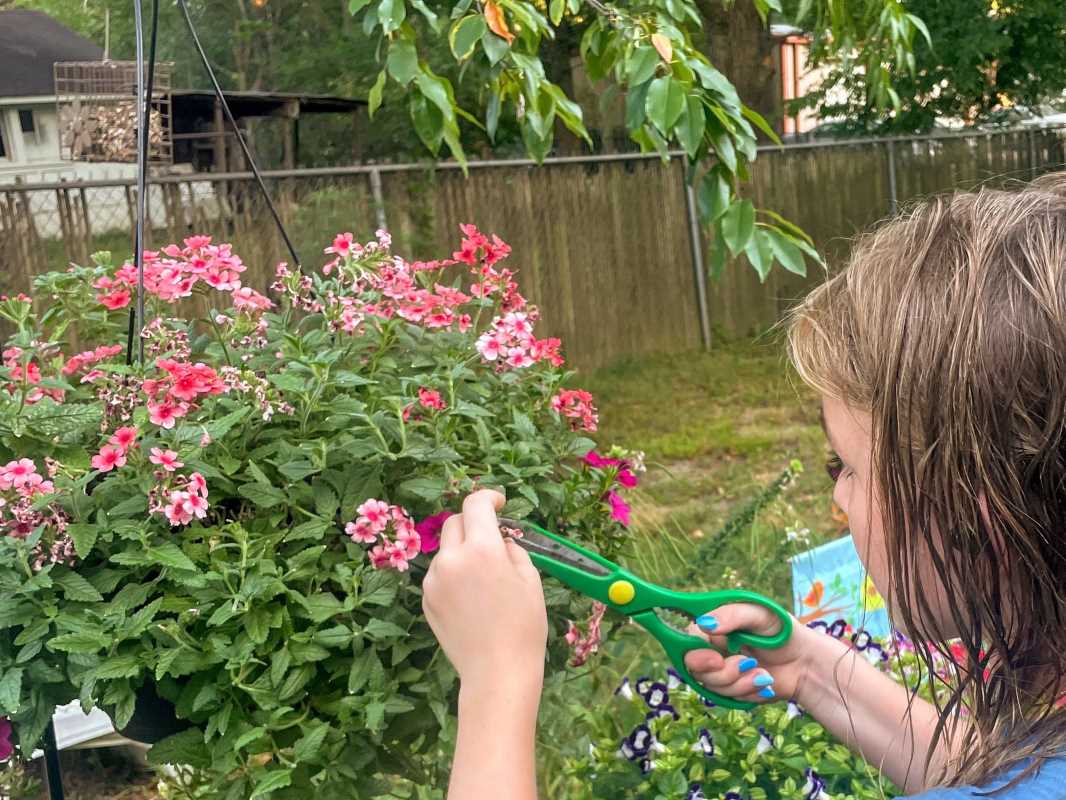Are you considering homeschooling your child but feeling overwhelmed by the idea of where to start? Don't worry; with the right tools, you can set yourself and your child up for success. From organizational aids to educational resources, having essential tools in place can make the homeschooling journey smoother and more enjoyable. Let's explore some key tools that can help you create a thriving homeschool environment.
Designated Study Space
Creating a designated study space is crucial for homeschooling success. Having a dedicated area in your home where your child can focus on their studies without distractions can greatly enhance their learning experience. Make sure the study space is well-lit, comfortable, and stocked with all the necessary supplies like textbooks, notebooks, and writing utensils. Incorporating a whiteboard or bulletin board can also be beneficial for visual aids and reminders.
Consider personalizing the space with your child's favorite colors or inspirational quotes to make it feel inviting and motivating. A comfortable chair and desk that suits your child's height can also promote better posture and concentration. You might want to add some educational posters or charts related to subjects they are studying, which can serve as helpful reference points during lessons.
Curriculum Materials
Choosing the right curriculum materials is essential for a well-rounded education. Whether you opt for a pre-packaged curriculum or prefer to piece together resources from various sources, ensure that the materials align with your child's learning style and goals. Look for options that cover core subjects like math, language arts, science, and social studies, as well as additional enrichment activities such as art, music, and physical education.
When selecting curriculum materials, consider your child's interests and strengths. For instance, if your child enjoys storytelling, look for language arts programs that incorporate creative writing. If they are fascinated by nature, a science curriculum that includes hands-on experiments and outdoor activities can enhance their learning experience.
Additionally, don't hesitate to explore local libraries or online platforms that offer free educational resources. Many educational websites provide printable worksheets, lesson plans, and interactive activities that can supplement your chosen curriculum. Tailoring your approach based on your child's interests can make learning more engaging and enjoyable.
Digital Learning Resources
In today's digital age, educational websites, apps, and online platforms can be invaluable resources for homeschooling families. Platforms like Khan Academy, Duolingo, and ABCmouse offer interactive lessons and activities across various subjects and grade levels. Utilizing digital resources can supplement traditional teaching methods and make learning more engaging and dynamic for your child.
Incorporating technology into your homeschooling routine allows for a diverse range of learning experiences. For example, educational games can help reinforce math skills, while language learning apps can assist in acquiring a new language in a fun and interactive way. Many online platforms offer progress tracking features, allowing you to monitor your child's growth and adjust their learning path accordingly.
Planner or Scheduling Tool
Staying organized is key to homeschooling success, and a planner or scheduling tool can help you keep track of lessons, assignments, and activities. Whether you prefer a physical planner or a digital calendar, having a centralized place to plan your homeschooling days can help you stay on top of your child's education and ensure they meet their learning objectives.
Consider breaking down your lessons into daily or weekly schedules that outline what subjects will be covered, any planned activities, and any assessments or projects due. This approach can provide both you and your child with a clear roadmap for the week ahead. It can also help establish a routine, which can be comforting and beneficial for young learners.
Moreover, involving your child in the planning process can promote a sense of ownership over their education. Allow them to have input on the subjects they wish to explore further or the types of activities they would enjoy. This collaboration can lead to increased motivation and enthusiasm for learning.
Support Networks
While homeschooling can be a rewarding experience, it can also be challenging at times. Building a support network of other homeschooling families, local co-ops, or online communities can provide you with a sense of camaraderie and access to valuable resources and advice. Connecting with like-minded parents and educators can offer encouragement, inspiration, and practical tips for navigating the homeschooling journey.
Consider joining local homeschooling groups or co-ops that meet regularly for socialization and shared learning experiences. Many of these groups organize field trips, workshops, and group lessons, providing your child with a sense of community and additional educational opportunities. Online forums and social media groups can also be a great way to share experiences and seek advice from fellow homeschooling parents.
Furthermore, participating in extracurricular activities such as sports, art classes, or music lessons outside the home can provide your child with social interactions and skill development. Balancing academic learning with social opportunities can contribute to a well-rounded homeschooling experience.
Educational Games and Activities
Learning should be fun, and incorporating educational games and activities into your homeschool routine can make concepts more engaging and memorable for your child. From board games that teach math skills to science experiments conducted in your kitchen, there are countless ways to make learning interactive and enjoyable. Look for age-appropriate games and activities that align with your child's interests and academic goals.
Hands-on activities such as crafting, cooking, or gardening can also serve as effective educational tools. For instance, cooking can enhance math skills through measuring ingredients, while gardening can provide lessons in biology and environmental science. The key is to find ways to blend learning with fun, allowing your child to explore and discover at their own pace.
Don't forget to utilize online educational games and apps that provide interactive learning experiences. Many of these resources offer engaging ways to practice skills, assess knowledge, and receive immediate feedback, making learning feel like a game rather than a chore.
Encouraging Independence
As your child progresses in their homeschooling journey, fostering independence is vital for their growth and development. Encourage them to take responsibility for their learning by setting personal goals and tracking their progress. Provide opportunities for them to choose projects or subjects they are passionate about, allowing them to take ownership of their education.
One effective strategy is to implement a system where your child can select from a variety of assignments or projects that align with the curriculum.
For instance, if you're studying a historical period, give them options such as creating a presentation, writing a report, or crafting a diorama. This approach allows for creativity and promotes critical thinking and decision-making skills.
Additionally, consider incorporating self-directed learning sessions where your child can explore topics of interest independently. Provide them with resources such as books, documentaries, or online courses that they can engage with at their own pace. This will not only enhance their research skills but also build their confidence in seeking out knowledge on their own.
Balancing Screen Time
Incorporating technology into your homeschooling routine is beneficial, but it's essential to maintain a balance with screen time. Establishing boundaries for technology use can help ensure that your child engages with a variety of learning methods, including hands-on activities, physical books, and outdoor exploration.
Consider implementing a daily schedule that allocates specific time blocks for screen-based learning and non-screen activities. Encourage breaks to engage in physical activities, such as going for walks, playing sports, or participating in arts and crafts. These breaks can help refresh your child's mind and promote a well-rounded approach to education.
Furthermore, use technology mindfully by selecting high-quality educational content that aligns with your curriculum. Monitor the apps and programs your child is using to ensure they provide value and support their learning goals.
Assessing Progress
Regularly assessing your child's progress is an important part of the homeschooling process. This can help you identify areas where they excel and areas that may need additional support. Various methods can be used to assess learning, including quizzes, projects, presentations, or informal discussions.
Consider using a portfolio system where you can collect samples of your child's work over time. This portfolio can showcase their progress, skills, and achievements, providing a comprehensive overview of their learning journey. Additionally, incorporating self-assessment techniques can help your child reflect on their own growth and set future goals.
Remember to celebrate accomplishments, both big and small. Recognizing your child's efforts and achievements can boost their confidence and motivation, encouraging them to continue striving for excellence in their learning.
Flexibility and Adaptability
One of the greatest advantages of homeschooling is the flexibility it offers. Unlike traditional school settings, you have the freedom to adjust your schedule, curriculum, and teaching methods to suit your child's unique needs and interests. Embrace this flexibility and be willing to adapt your approach as necessary.
If you notice your child struggling with a particular subject, consider modifying the pace or exploring alternative resources that may resonate better with them. On the other hand, if they show a keen interest in a specific topic, don't hesitate to delve deeper and expand the curriculum to explore it further.
Flexibility also applies to the daily schedule. If your child thrives in the morning, consider starting lessons earlier. If they need more time to wake up, adjust the schedule accordingly. The ability to tailor the learning experience to your child's needs can enhance their engagement and overall enjoyment of education.
Building a Lifelong Love for Learning
Ultimately, the goal of homeschooling is to cultivate a lifelong love for learning in your child. By creating a nurturing and stimulating environment, you can instill a sense of curiosity and passion for knowledge that lasts beyond your school years.
Encourage your child to pursue their interests, ask questions, and seek answers. Foster a culture of exploration by exposing them to various subjects, activities, and experiences. Whether it's visiting museums, attending workshops, or engaging in community service, each experience can contribute to their growth and development as learners.
As your child progresses in their homeschooling journey, reinforce the idea that learning is a continuous process. Help them develop the skills necessary to seek out knowledge independently, adapt to new challenges, and embrace opportunities for growth.
.jpg) (Image via
(Image via





